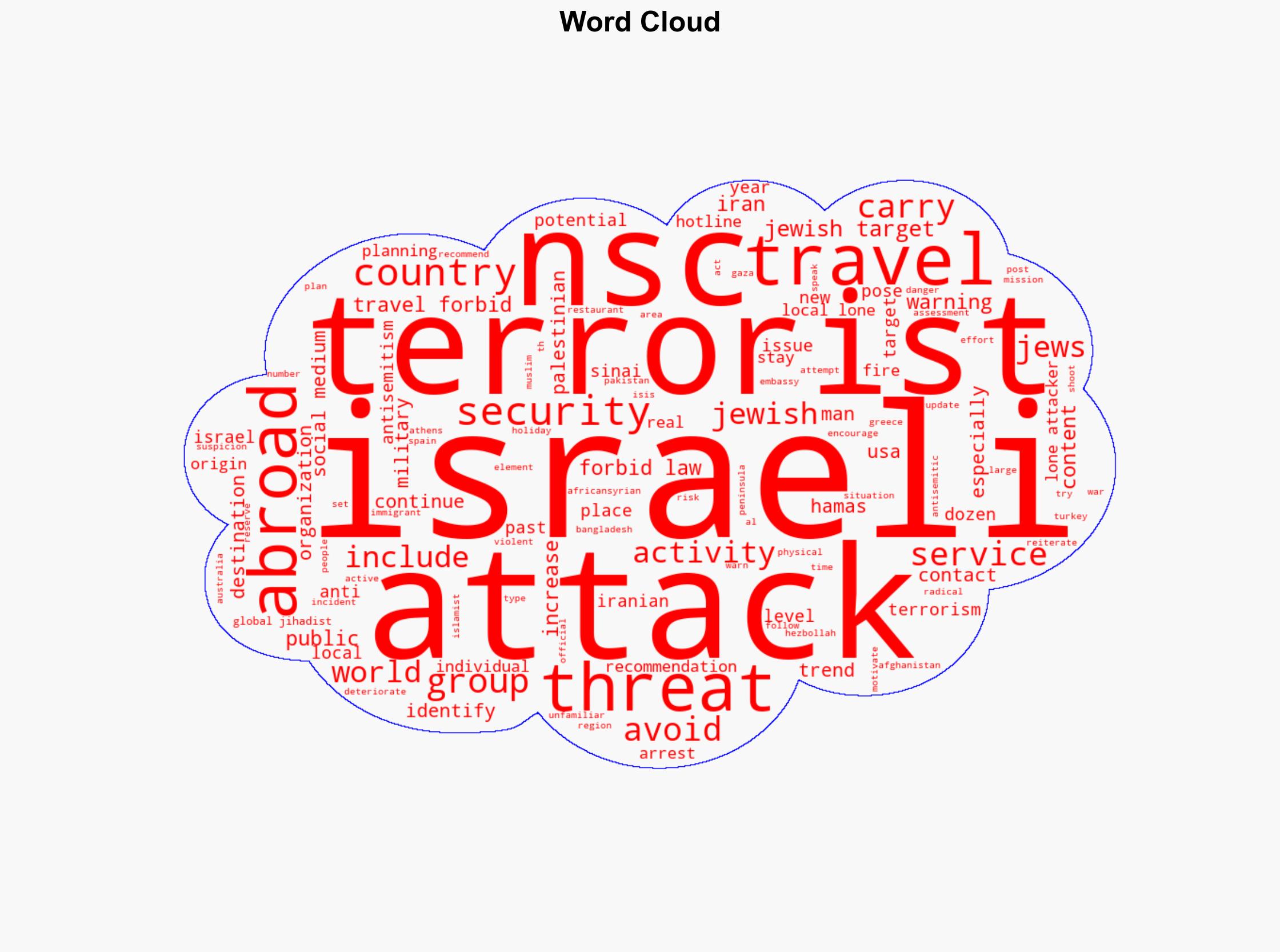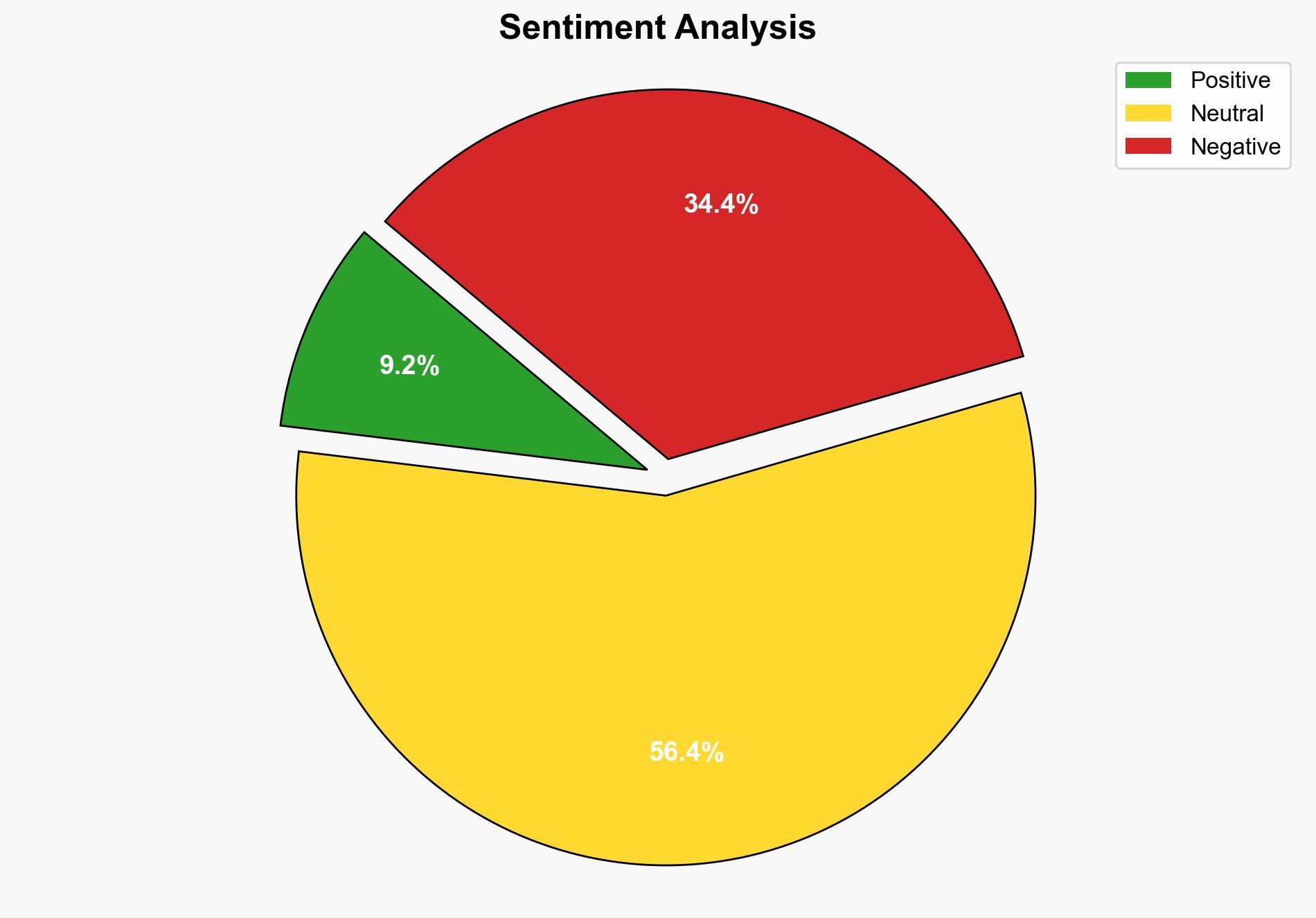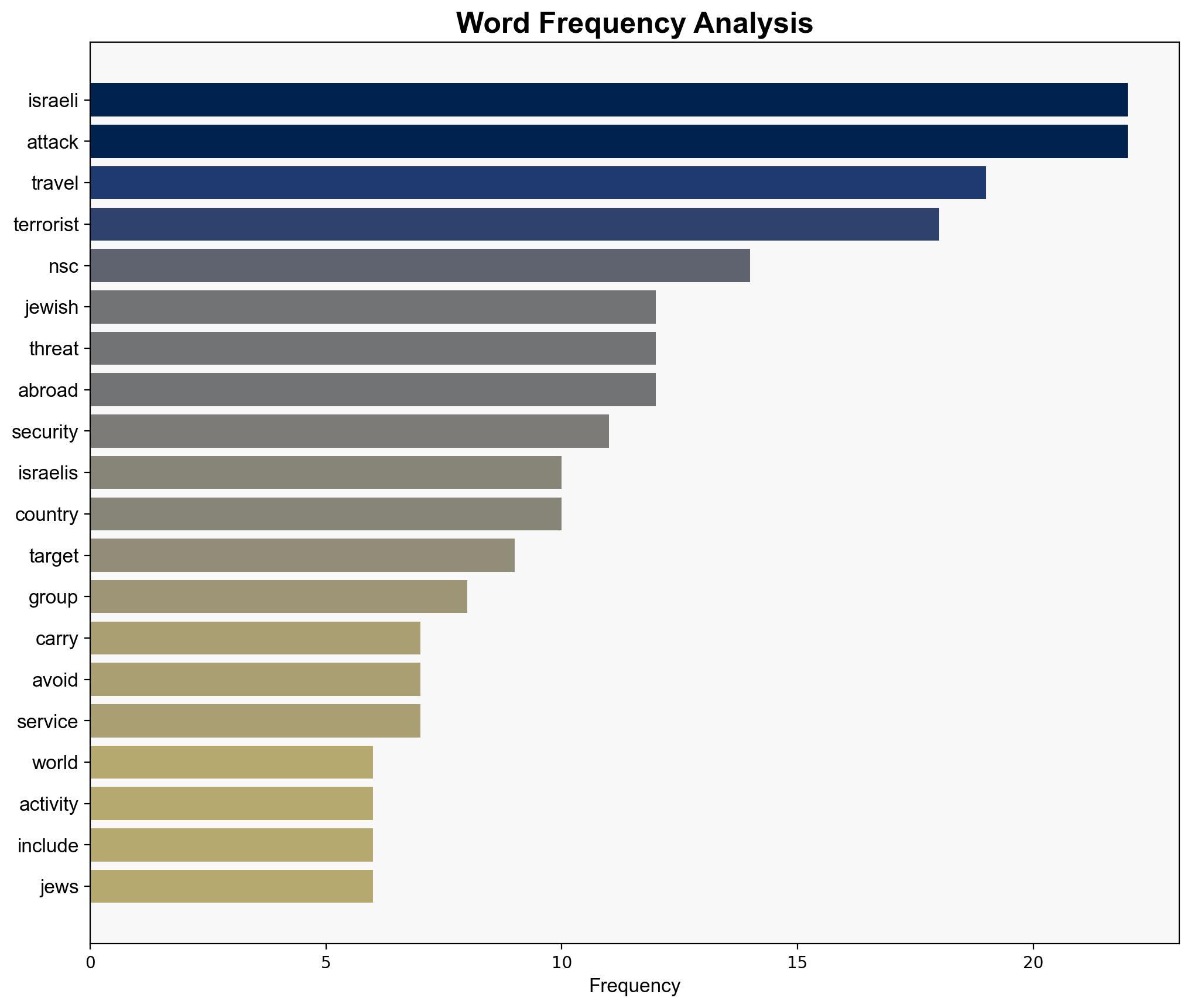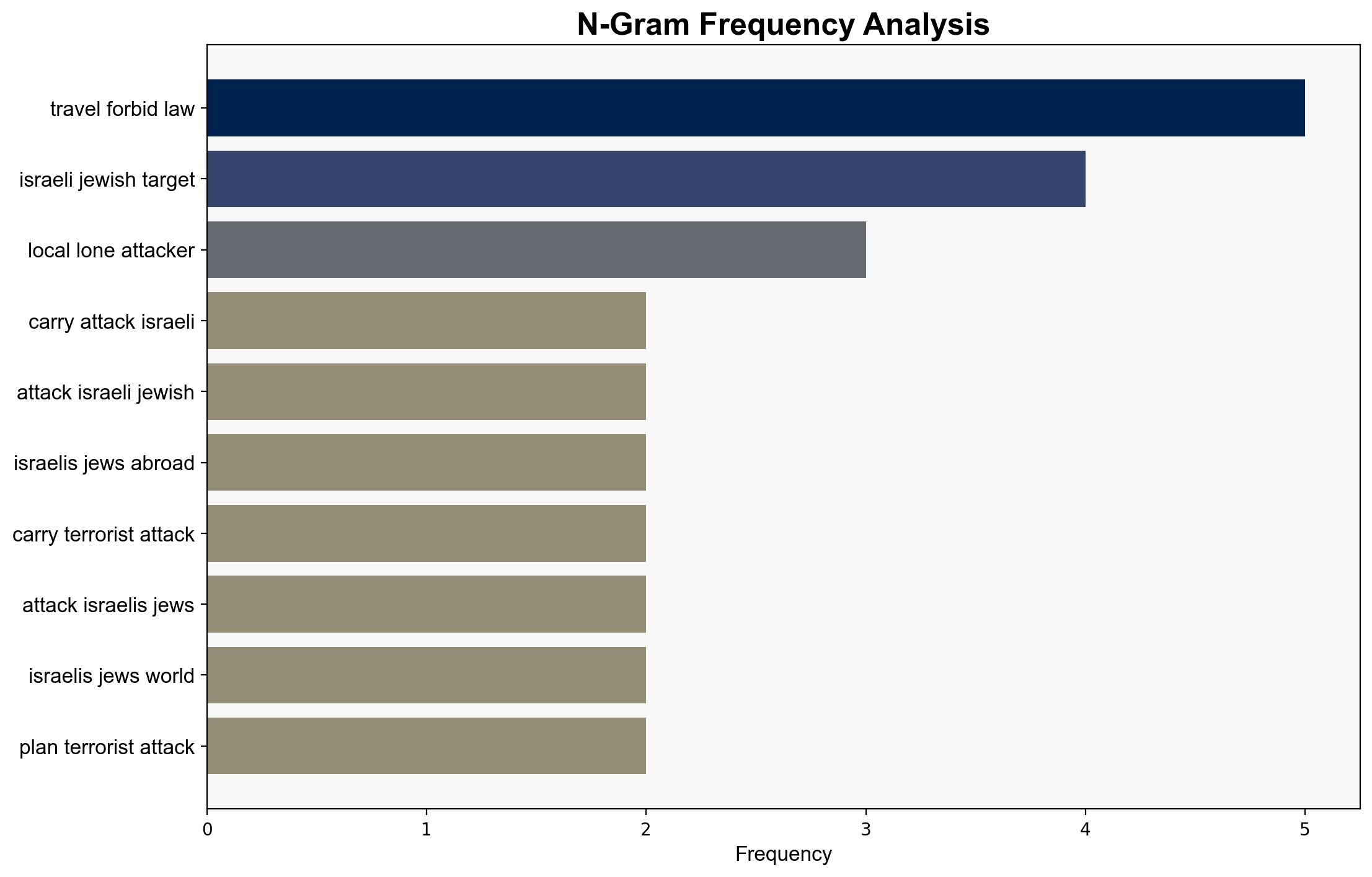NSC report on threats against Israelis abroad during High Holidays – Israelnationalnews.com
Published on: 2025-09-14
Intelligence Report: NSC report on threats against Israelis abroad during High Holidays – Israelnationalnews.com
1. BLUF (Bottom Line Up Front)
The most supported hypothesis is that the threat against Israelis abroad during the High Holidays is significantly heightened due to coordinated efforts by state and non-state actors, particularly Iran, Hamas, and global jihadist groups. The confidence level in this assessment is high, given the documented increase in threats and thwarted attacks. Recommended actions include heightened security measures for Israeli travelers and diplomatic missions, increased intelligence sharing with allies, and public awareness campaigns.
2. Competing Hypotheses
1. **Coordinated Threat Hypothesis**: The threat level against Israelis abroad is heightened due to a coordinated effort by Iran, Hamas, and global jihadist groups to exploit the symbolic significance of the High Holidays. This hypothesis is supported by the increase in thwarted attacks and the strategic timing of these threats.
2. **Localized and Opportunistic Threat Hypothesis**: The threats are primarily opportunistic and localized, driven by individual actors or small groups inspired by broader anti-Israeli sentiment and recent geopolitical events, rather than a coordinated campaign. This hypothesis is less supported due to the lack of evidence indicating isolated incidents without broader organizational backing.
3. Key Assumptions and Red Flags
– **Assumptions**: The analysis assumes that the documented thwarted attacks are indicative of broader, coordinated efforts rather than isolated incidents. It also assumes that the intelligence provided is comprehensive and not subject to significant bias or misinformation.
– **Red Flags**: The potential for cognitive bias exists in overestimating the coordination among disparate groups. Additionally, there is a risk of underestimating the capability of lone actors inspired by extremist narratives.
4. Implications and Strategic Risks
The heightened threat level poses significant risks to Israeli citizens abroad, potentially impacting diplomatic relations and international travel. The escalation of anti-Israeli sentiment could lead to increased attacks, affecting global security dynamics. Economic impacts could arise from reduced travel and heightened security costs. Cyber threats may also increase as part of broader anti-Israeli campaigns.
5. Recommendations and Outlook
- Enhance security protocols for Israeli travelers and diplomatic missions, particularly in high-risk regions.
- Increase intelligence sharing with international partners to preempt potential attacks.
- Conduct public awareness campaigns to inform Israeli citizens of potential risks and safety measures.
- Scenario Projections:
- **Best Case**: Heightened security and intelligence efforts successfully thwart all planned attacks, maintaining safety for Israelis abroad.
- **Worst Case**: Successful attacks occur, leading to casualties and heightened international tensions.
- **Most Likely**: Continued thwarting of attacks with occasional isolated incidents, maintaining a high alert status.
6. Key Individuals and Entities
– Iran
– Hamas
– Global jihadist groups (e.g., ISIS, Al-Qaeda)
7. Thematic Tags
national security threats, counter-terrorism, regional focus





